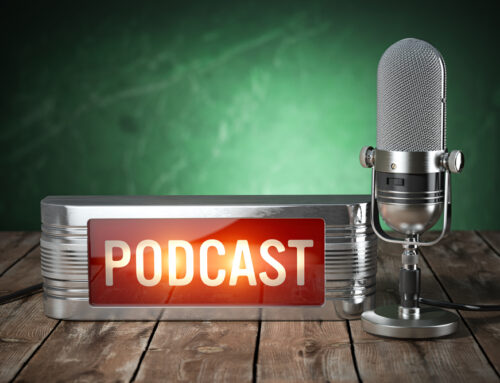Podcasting has become a powerful tool for individuals and businesses. This is a great opportunity for you to leverage your expertise and connect with your audience. Podcasting continues to be a unique and effective way to share information, entertain, and build a loyal following.
The Benefits of Podcasting
One of the key benefits of podcasting is its ability to connect with your audience on a deeper level. Unlike other forms of content, such as blog posts or videos, podcasts allow listeners to hear your voice and get a sense of your personality. This creates a more intimate and personal connection, which can lead to increased trust and loyalty from your audience.
Podcasting also offers several advantages over other forms of content. For one, it is a highly portable medium. Listeners can easily download episodes onto their smartphones or other devices and listen to them while commuting, exercising, or doing other activities. This means that your content can reach your audience at times when they may not be able to consume other forms of content, such as reading a blog post or watching a video.
Finding Your Target Audience
To create a successful podcast to leverage your expertise, it is important to identify your target audience and create relevant content that resonates with them. This starts with understanding who your ideal listener is and what they are interested in. Conducting informal market research and audience analysis can help you gain insights into your target demographic’s preferences, needs, and pain points.
To better understand your audience, you can use various tools and techniques. Social media platforms like Facebook and LinkedIn provide valuable insights into the demographics and interests of your followers. You can also engage with your audience directly through surveys or by encouraging them to leave comments and feedback on your episodes.
Once you have identified your target audience, you can create content that addresses their specific interests and challenges. This could involve interviewing experts in your niche, sharing personal stories and experiences, or providing educational content. The key is to provide value to your audience and establish yourself as a trusted source of information or entertainment in your niche.
Creating a Successful Podcast
Creating a successful podcast involves more than just recording and uploading episodes. It requires careful planning, preparation, and promotion. Here are some tips to help you create a podcast that stands out and attracts a loyal audience.
First, invest in quality recording equipment, or invest in recording studio time. This will make your podcast more enjoyable to listen to and help you establish a professional image.
Next, pay attention to the editing process. Editing your episodes can help you remove any mistakes or awkward pauses, as well as add music or sound effects to enhance the listening experience. This step is where you need to decide if it is worth your time to learn how to edit audio or pay a professional audio editor. What is your time worth?
Once your episodes are ready, it’s time to promote your podcast. Utilize social media platforms, email newsletters, and your website to spread the word about your podcast. Engage with your audience by responding to comments and questions. Consider collaborating with other podcasters or influencers in your niche to expand your reach.
Finally, measure the success of your podcast by tracking key metrics such as downloads, listens, and engagement. This will help you understand what is resonating with your audience and make informed decisions about future episodes and content.
Leverage Your Expertise by Monetizing Your Podcast
Podcasting can also be a lucrative venture if you know how to monetize it effectively. There are several ways to generate revenue from your podcast, including sponsorships, advertising, merchandise sales, and crowdfunding.
Sponsorships involve partnering with brands or companies that align with your podcast’s niche and audience. In exchange for promoting their products or services on your show, you receive financial compensation. This can be a win-win situation if the sponsor’s offerings are relevant and valuable to your audience.
Advertising is another common way to monetize a podcast. You can sell ad spots within your episodes or partner with an advertising network that connects you with relevant advertisers. The key is to strike a balance between providing value to your audience and generating revenue through advertising.
Merchandise sales can be a great way to monetize your podcast and build your brand. You can create and sell branded merchandise, such as t-shirts, mugs, or stickers, to your audience. This not only generates revenue but also helps to promote your podcast and increase brand awareness.
Crowdfunding platforms like Patreon allow you to receive financial support from your audience in exchange for exclusive content or perks. This can be a great way to monetize your podcast while also building a community of dedicated fans.
Start to Leverage Your Expertise Now
Podcasting is a powerful tool for individuals and businesses to leverage their knowledge and connect with their audience. It offers several advantages over other forms of content, including its portability, intimacy, and ability to target specific audiences. By finding your niche, creating relevant content, and promoting your podcast effectively, you can build a loyal following and monetize your podcast.
So whether you’re just starting out or already have a podcast, the power of podcasting is in connecting with your audience, sharing your knowledge, and leveraging your expertise. With the right approach and dedication, podcasting can be a rewarding and impactful endeavor.




